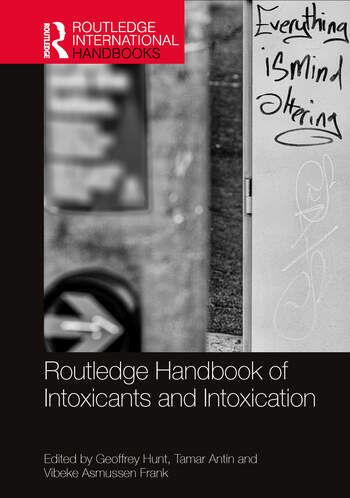
Bringing together scholars from different disciplines in the humanities and social sciences, this multidisciplinary Handbook offers a comprehensive critical overview of intoxicants and intoxication.
The Handbook is divided into 34 chapters across eight thematic sections covering a wide range of issues, including the meanings of intoxicants; the social life of intoxicants; intoxication settings; intoxication practices; alternative approaches to the study of intoxication; scapegoated intoxicants; discourses shaping intoxication; and changing notions of excess. It explores a range of different intoxicants, including alcohol, tobacco, coffee, tea, and legal and illicit drugs, including amphetamine, cannabis, ecstasy, khat, methadone, and opiates. Chapter length case studies explore these intoxicants in a variety of countries, including the USA, the UK, Australia, Bosnia & Herzegovina, Brazil, Denmark, Ireland, Japan, Kyrgyzstan, Nigeria, Singapore, and Sweden, across a broad timespan covering the nineteenth century to the present day.
This wide-ranging Handbook will be of great interest to researchers, students, and instructors within the humanities and social sciences with an interest in a wide range of different intoxicants and different intoxication practices.